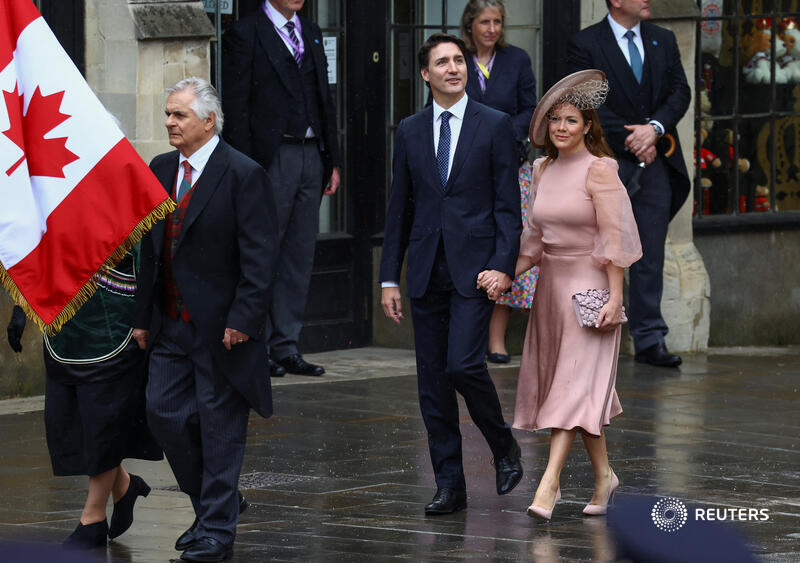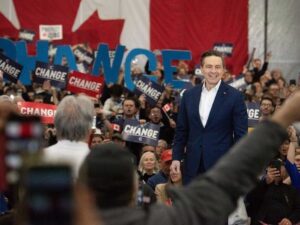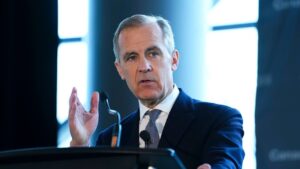
Canadian Indigenous leaders had an audience with King Charles III Thursday, some for the first time, allowing them to form a relationship with the new monarch before his coronation.
Among those leaders were Cassidy Caron, President of the National Metis Council, and Natan Obed, President of Inuit Tapirlit Kanatami, who spoke to CityNews following the meeting.
Caron and Obed will be a part of the Canadian delegation attending the King’s coronation of the few thousand who will witness the ceremony.
“To have Indigenous representation as a part of that official delegation, it signifies the relationship that we have with the Crown and a new pathway forward as we continue to move ahead,” said Caron, adding she acknowledges the importance of their participation.
Caron said they are hopeful of a way forward following their meeting with King Charles, but there is still a long way to go.
“In meeting with the King, we started to build a relationship and talk about the priorities that we have as the Métis nation and as Indigenous people in Canada. And finding ways that we can align our priorities to move forward together.”
Caron tells CityNews she spent the time with the King talking to him about the Métis nation, sharing stories and talking about where the relationship with the Crown has been and where they would like it to be.
“The priorities are that we’re working on as a nation and trying to find the alignment with the King’s priorities such as community development, the environment, and cultural revitalization. And his reaction was quite positive. He was very open sharing his priorities and the work that he has done in his past and trying to find that alignment with our priorities as well,” shared Caron.
Obed said he was a little more hesitant about sharing his hopefulness that the new King will be different than his mother, Queen Elizabeth II, was in working with the Indigenous population in Canada.
“This is the start of a new relationship. Certainly, the Queen wasn’t very hands-on when it came to implementing Indigenous peoples’ rights in Canada. And we are hoping that His Majesty will be a little more closely concerned with reconciliation and ultimately the implementation of self-determination of First Nations Union in Métis in Canada,” said Obed.
He added it’s a long road ahead, and they are only at the beginning.
“We certainly have high hopes, and there are a lot of very difficult conversations to have along with the areas where I think we can jump in right away. There are scopes of work that we can do that don’t require to go through the muddy waters of our colonial history.”
Obed describes true reconciliation as the implementation of the United Nations Declaration on the Rights of Indigenous Peoples.
“We’re in the process of trying to find a way forward with Canada when Canada historically has not seen Indigenous Peoples rights as human rights. And now I think there is an awakening. We are trying to figure out how to amend legislation to create a new relationship,” explained Obed.
“And with an Indigenous person as Governor-General, Mary Simon now can play a critical role in bringing these reconciliation efforts directly to King Charles himself. And he will, when he thinks of Canada, have the opportunity to do positive work with us on reconciliation.”
Whether the King will be able to make a difference, Obed said he hopes so. “He has talked about his affinity to Indigenous ways of knowing. The way in which we understand the environment. How we bring our cultures into this vibrant, global mosaic. And I do hope that then that extends to, very practically, the upholding of our existing human rights.”
The subject matter is even more front of mind as Canada marks the National Day of Awareness for Missing and Murdered Indigenous Women, Girls and Two-Spirit People on May 5.
Caron tells CityNews it was a topic brought up during Thursday’s conversation with King Charles. “There is an incredible amount of work to do back home to implement the Calls for Justice from the Missing and Murdered Indigenous Women and Girls Inquiry Report and expand the conversation,” Caron shared.
“There is a significant amount of systemic change that has to occur to end that tragedy. It’s a big portfolio that President Obed and I are a part of back home. And I always carry with me a certain amount of hope that we will be able to influence the necessary change. However, we need active participation from all systems and institutions in our country to make that change.”
As for what they will be thinking of when they see Charles officially crowned King.
I’ll be thinking of the complex relationship that the Métis Nation has had with the Crown. Certainly, the unique history that we have gone through with the Crown and the Royal Family,” said Caron.
“But also thinking ahead and thinking to the future about potential future opportunities. I think it’s always incumbent upon us as leaders to be trying to move forward and create positive change where doors are open for us and sometimes open those doors ourselves.”
Obed said he believes it will be a bittersweet moment for him.
“The Crown has been a part of my life ever since I was a little child in our communities … and we also understood that the Crown has made decisions that drastically impact our lives. And it’s not just historically, but even up until today. And so being at the heart of that colonial institution and witnessing it, it’s still an education for me about the differences between my understanding of that as a child and even up until adulthood, into the way it expresses itself here in London.”
“And I certainly bring that pride of being Canadian and being a part of the delegation, but also the difficulty of being an Inuk and an Indigenous person with so many different histories related to the UK, to Britain and the Crown,” Obed added.
Britain’s King Charles III arrives for the 200th Sovereign’s Parade at the Royal Military Academy Sandhurst (RMAS) in Camberley, England, Friday, April 14, 2023. The King’s first months on the throne have shown he’s a monarch who will take an active role in different causes and is ready to engage with the public, royal experts say.








